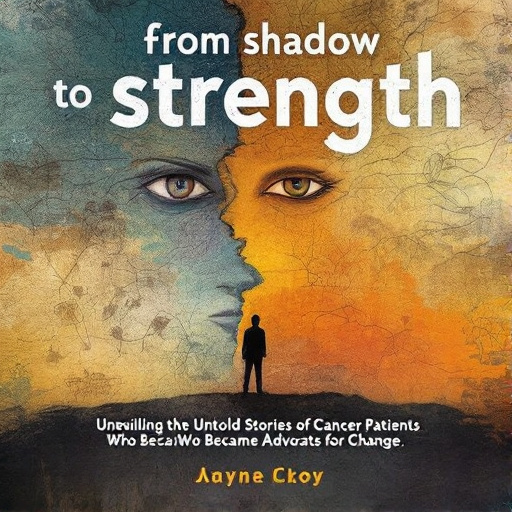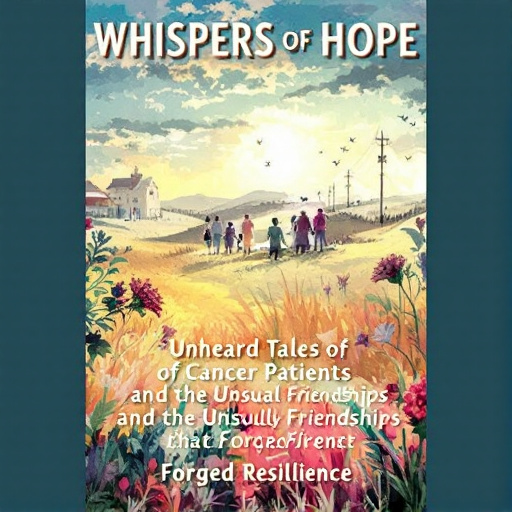Featured Articles
- 12 Pivotal Moments in Cancer Patients’ Lives That Shaped Unconventional Paths to Recovery
- Beyond the Diagnosis: The Unseen Impact of Cancer on Relationships and Social Dynamics
- Finding Light in the Shadows: Uncommon Spiritual Journeys of Cancer Survivors
- From Shadow to Strength: Unveiling the Untold Stories of Cancer Patients Who Became Advocates for Change
- Top 6 Wearable Tech Devices Revolutionizing Comfort and Support for Cancer Patients in Recent Years
When Hope Meets Humor: The Role of Comedy in Cancer Patient Recovery Stories
When Hope Meets Humor: The Role of Comedy in Cancer Patient Recovery Stories
When facing a cancer diagnosis, many patients find light in dark times through the power of humor. This article explores the transformative role comedy plays in the recovery journey, showcasing personal stories, scientific insights, and the profound effects of laughter on healing.
The Power of Laughter: An Introduction
Peter died of cancer at the age of 57, but before he passed away, he made a point to joke about it frequently. He believed that laughter was a way to reclaim his power over a disease that often makes patients feel powerless.
According to a study in the Journal of Clinical Oncology, humor can reduce stress and enhance the quality of life for cancer patients (Source: Boslaugh, S., 2016). For many, a good laugh can overshadow the shadows cast by debilitating treatments and daunting prognosis.
A Case Study: Joan's Journey
Joan, a 30-year-old breast cancer survivor, shared how she turned to stand-up comedy during her treatment. “I couldn’t change my diagnosis, but I could change my perspective,” she said. “I started writing jokes about my experience, and it helped me cope.” Her comedy not only provided her with an outlet for her feelings but also created a supportive community of friends and fellow comedians.
Building Connections Through Humor
Joan's story is just one of many where laughter has built bridges. Humor allows patients to relax, connect, and find common ground with peers, caregivers, and even doctors. “When I started making jokes about my situation," she reflected, "I noticed my friends were more comfortable around me. We could joke about the awkwardness of hospitals and the terrible wigs.”
Statistics that Make You Smile
Research published in the journal Psycho-Oncology reveals that approximately 60% of cancer patients report using humor as a coping mechanism. This statistic highlights how integral laughter is to many patients' coping strategies.
Moreover, a study highlighted by the American Cancer Society found that laughter can increase pain tolerance, reduce anxiety, and even boost immune function. One could say that laughter truly is the best medicine—second only to actual medicine!
The Science Behind Laughter
Interestingly enough, laughter triggers the release of endorphins, the body's natural feel-good chemicals. As a result, patients may experience reduced pain, elevated mood, and enhanced social interaction ability. A study conducted at the University of Oxford showed that patients who engaged in laughter therapy reported a decrease in depressive symptoms (Source: Oxford University, 2022).
Humor and Its Variants: From Dark Comedy to Light-hearted Banter
Humor is subjective, and while some may prefer dark comedy during tough times, others gravitate towards light-hearted banter. A balance between the two can often be therapeutic. “I love the kind of humor that pokes fun at the absurdity of life and death,” shared Larry, a 45-year-old leukemia survivor. “At a dark time, that kind of humor made me feel like I was in control.”
Transforming Trauma into Comedy
The evolution of humor in the cancer experience is fascinating. Shows like “Cancer: The Musical” feature humor woven into narratives about dealing with illness and burial pallor, affecting audiences on a profound level. Larry found solace in attending one of the performances along with his treatment group. “We laughed until we cried, and that made all the difference,” he recounted.
The Role of Caregivers
It's not just patients who benefit from humor; caregivers find joy in laughter as well. A light moment can ease the burden of care and provide much-needed stress relief. Techniques that encourage light-hearted interactions, such as improv games, have become part of some cancer support groups.
Jennifer, a nurse at her local cancer center, noted, “I often use humor when interacting with patients. It builds rapport and trust. It helps them open up and feel at ease.” The power of laughter often transcends individual experiences, creating a shared space of camaraderie and understanding.
Anecdotes from Around the Globe
In cultures worldwide, humor manifests uniquely yet consistently champions the same cause: resilience. In India, a documentary titled “Funny You Should Ask” highlighted how comedians help cancer patients cope through laughter and storytelling. Patients contribute their experiences, creating a tapestry of humor that resonates and empowers everyone involved.
Combining Creativity and Humor
Moreover, many are channeling creativity as a means of recovery. The British Cancer Society initiated a project called “Write to Recovery,” encouraging patients to write comedic pieces about their experiences. These programs produced not just relatable content but also therapeutic work that validated their stories through humor.
The Ripple Effect: How Humor Affects Others
“Laughter is contagious,” says Dr. Linda Six, a renowned psychologist specializing in oncology. “When one person begins to laugh, it triggers a chain reaction.” This phenomenon highlights how humor can alter the atmosphere of treatment rooms, providing solace and a shared outlet for caregivers and family members alike.
Incorporating Humor into Cancer Treatment
Treatment plans increasingly include laughter therapy, where practitioners emphasize humor as a complementary treatment. Gynecological oncologists in some hospitals have begun hosting “Laughter Yoga” sessions, where laughter itself acts as a form of exercise and connection.
Dr. María Gonzalez, a physician, sees the benefits firsthand. “It's fantastic to watch patients come in stressed and leave with smiles. They might not be cured, but they feel lighter,” she noted during her review of these sessions.
The Bottom Line: Hope Meets Humor
Ultimately, humor can be an incredibly potent tool in a patient's recovery arsenal. It fosters a sense of community, bolsters emotional resilience, and offers an escape from the harsh realities of medical treatments. Joan sums it up perfectly: “Laughter might not take away the cancer, but it definitely makes the journey a whole lot lighter.”
Your Invitation to Laugh
As we look to incorporate more humor into the cancer experience, consider exploring comedies, engaging in laughter therapy, or even sharing light-hearted anecdotes with loved ones undergoing treatment. Just a few moments of joy can make a world of difference.
So next time you find yourself in the midst of a tough conversation, remember Joan, Larry, and the countless others who have turned their struggles into comedy and hope. After all, when hope meets humor, recovery blossoms in ways that nothing else can.




